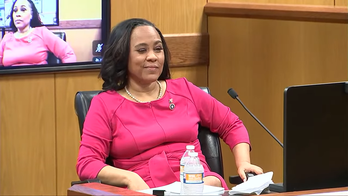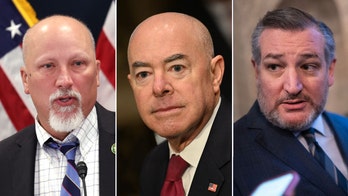The Supreme Court decision on Thursday upholding President Barack Obama's Affordable Care Act, including its individual mandate requiring all Americans to buy health insurance will have a particular impact on the Latino population of the United States.
The matter is immensely important to Latinos, who number some 50 million in the United States and who are twice as likely as the general population to be uninsured.
Nearly a third of Latinos, or slightly more than 15 million of them, are uninsured. They are three times as likely as non-Hispanic whites to be uninsured.
The issue especially impacts Latino women.
“Latinas still face far too many health disparities, including higher rates of cervical cancer and unintended pregnancy," said Jessica Gonzalez-Rojas executive director of The National Latina Institute for Reproductive Health.
"The steps the ACA takes toward eliminating disparities in care are critical for Latina health.”
That rate may be much higher given that many more Latinos are undocumented.
To fill the void for lack of healthcare, many immigrants in the Latino community often rely on a patchwork of remedies that includes getting medicine from their native countries that sometimes have been outlawed in the United States because they are considered unsafe.
The 5-4 decision, with Chief John Roberts writing the decision for the majority, means Obama's Affordable Care Act will go into effect over the next several years. The individual mandate will not be upheld under the Constitution's Commerce Clause, but will be upheld as a tax, according to the majority opinion written by Roberts.
Understanding the Tax
If an individual is required to have have health insurance, and chooses not to, they will have to pay a tax at the cost of a flat fee or a percentage of their income - whichever is more.
By 2014, those who are uninsured will have to pay a flat fee of $95 or 1% of their annual income.
By 2015, those who are uninsured will have to pay a flat fee of $325 or 2% of their annual income.
By 2016, those who are uninsured will have to pay a flat fee of $695 or 2.5% of their annual income.
The court found problems with the law's expansion of Medicaid, but even there said the expansion could proceed as long as the federal government does not threaten to withhold states' entire Medicaid allotment if they don't take part in the law's extension.
The court's four liberal justices, Stephen Breyer, Ruth Bader Ginsburg, Elena Kagan and Sonia Sotomayor, joined Roberts in the majority view.
Justices Samuel Alito, Anthony Kennedy, Antonin Scalia and Clarence Thomas dissented.
The decision is a big win for President Barack Obama who invested much of the political capital of his first term in passage of the health care measure. This is the second major court victory by the Obama Administration. Earlier this week, the court agreed with the federal government and struck down three of four provisions of Arizona's immigration law.
Latino Leaders React
The decision prompted immediate reaction from Latino leaders on the issue.
Congressman Luis Gutiérrez (D-IL) released a statement exclaiming that the ruling was a win for equality.
“Today's ruling makes a definitive statement about how dearly we hold the values of equality and opportunity in the United States,” said Gutierrez.
Nevada Governor Brian Sandoval, a Republican, accepted the ruling in a statement but asked for a reform by Congress.
“While I may not agree with the Supreme Court’s decision in this case, I respect the process envisioned by our founding fathers," Sandoval said. "The implications for Medicaid costs are still unclear, but Nevada will prepare to meet the serious financial implications of this decision.”
The National Council of La Raza, a Latino civil rights advocacy group, was happy with the decision tweeting, “The Supreme Court upholds health care reform: win for #LatinoHealth! Time to make the rest of law a reality.”
New Jersey Senator Robert Menéndez, a Democrat, said the decision was a victory for every American.
"I will oppose Republican efforts to repeal the consumer protections that would take us back to the days when insurance companies had free rein to do whatever they wanted.”
In Puerto Rico, the response is one of happiness, according to Guillermo Beytagh-Maldonado, a Latino rights activist who lives in Puerto Rico and New Jersey.
“The public health system in Puerto Rico is very dependent on Federal programs and resources,” Beytagh-Maldonado told Fox News Latino from Puerto Rico. “The reaction here to the Supreme Court decision is one of relief.”
Follow us on twitter.com/foxnewslatino
Like us at facebook.com/foxnewslatino




